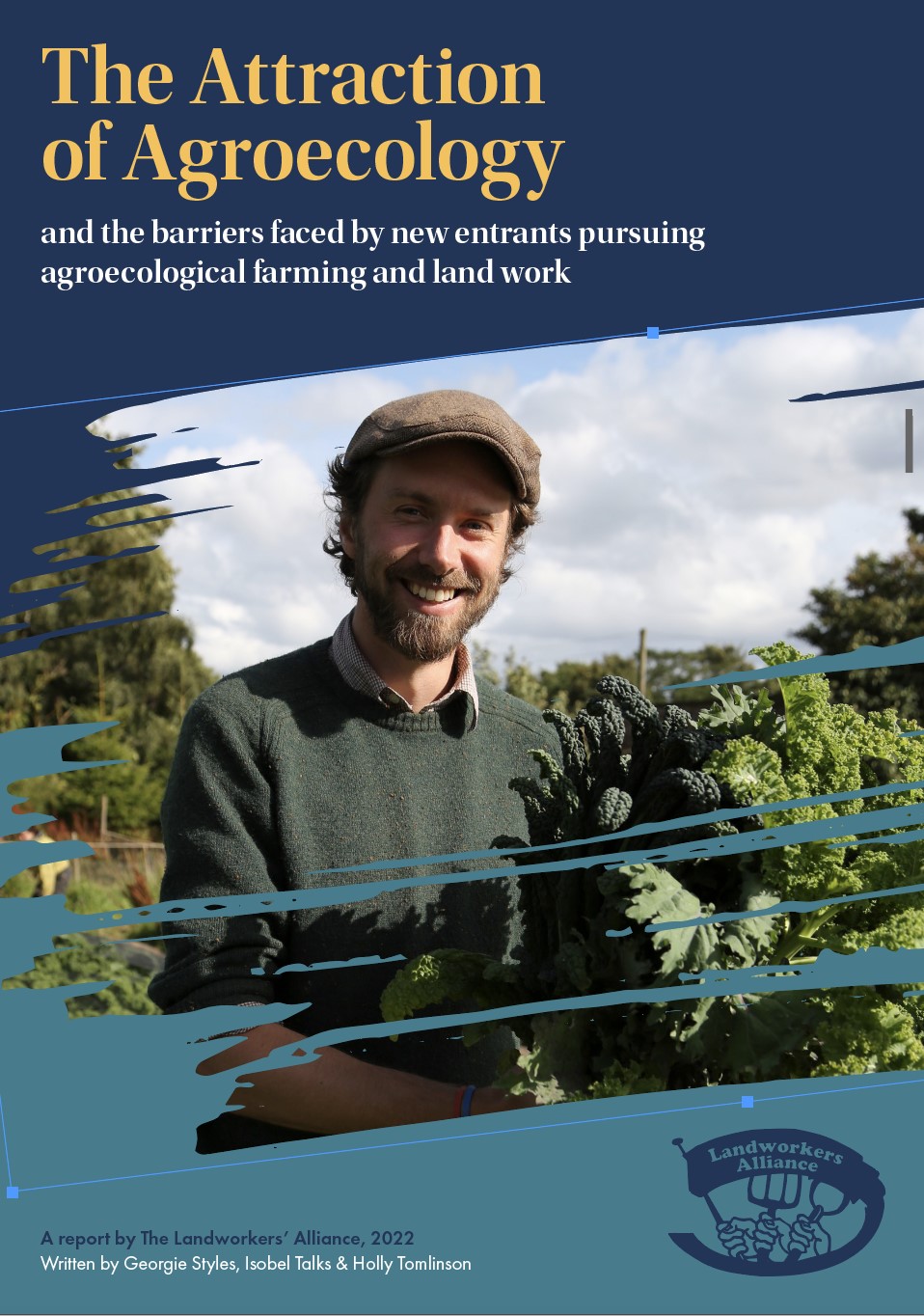New Report by the Landworkers’ Alliance
Based on findings from transdisciplinary research and drawing on interviews with eleven different new entrant case studies, this report encourages the governments of UK nations to recognise and act upon the urgent need to focus their support for new entrants into farming on breaking down the real barriers to entry for agroecological, short supply chain land-based enterprises.
The report shows that agroecological farming and land work is an attractive sector, and investing in routes into agroecology for new entrants has the potential to both rejuvenate and diversify the farming and food production sector, while also helping governments to meet their food, climate and green recovery commitments.
Agroecological farming practices aim to work with wildlife, mitigate climate change and give power to farmers and their local communities to create systems best suited to their needs. It is already a fulfilling and rewarding job for the few that know about it, and applies many of the sustainable farming practices that UK governments are heralding as part of their post-Brexit agricultural transition plans. But the UK urgently needs to scale up this kind of farming for ecological resilience, long-term food security, to create and support new jobs and revitalise rural economies.
Jo Kamal is a community food activist and grower working in London who took part in the research. They said:
“Farming and food growing weren’t really options for me growing up, they just never seemed like a possible route. I don’t know if it was because of my family or maybe wider societal factors and expectations of success. When I was younger, success didn’t look like food growing, but it does now – I’ve decided what success looks like for me.”
“It’s important to me to have a positive effect on the land that I’m working with, rather than against it. It’s also important to have opportunities to develop and have a rewarding career path. So many land work opportunities are voluntary, and that’s really hard, particularly if you are working class.”
Holly Tomlinson, LWA’s New Entrants Policy Coordinator, said:
“Contrary to the widespread view that today’s young people are not interested in farming, many are really attracted to the dignified, varied, skilful, team-based land work that is found in agroecological farming systems. The goal of producing sustainable, healthy food and restoring soil health and biodiversity is a key motivation for people who have grown up facing the climate crisis.
To grow this crucial sector, we need direct financial support and training for new entrants at all stages of their journey, alongside broader system changes that would not only support agroecological new entrants but also help create a more sustainable, vibrant and localised food system.”
The report’s main recommendations are:
- Build skills and knowledge by incorporating agroecological farming and food production into school curriculums and careers advice, supporting on-farm apprenticeships and accredited training programmes and investing in mentorship schemes and incubator farms.
- Enable access to land and housing through the introduction of government funded land-matching and share-farming services, the provision of low-interest loans for land trusts, and reforming planning laws to accommodate small farming enterprises including new dwellings for landworkers.
- Provide direct financial support for new businesses and remove area-based thresholds for agricultural subsidy payments.
- Support resilient local supply chains through the introduction of schemes such as dynamic public procurement.
Read the full report here.

